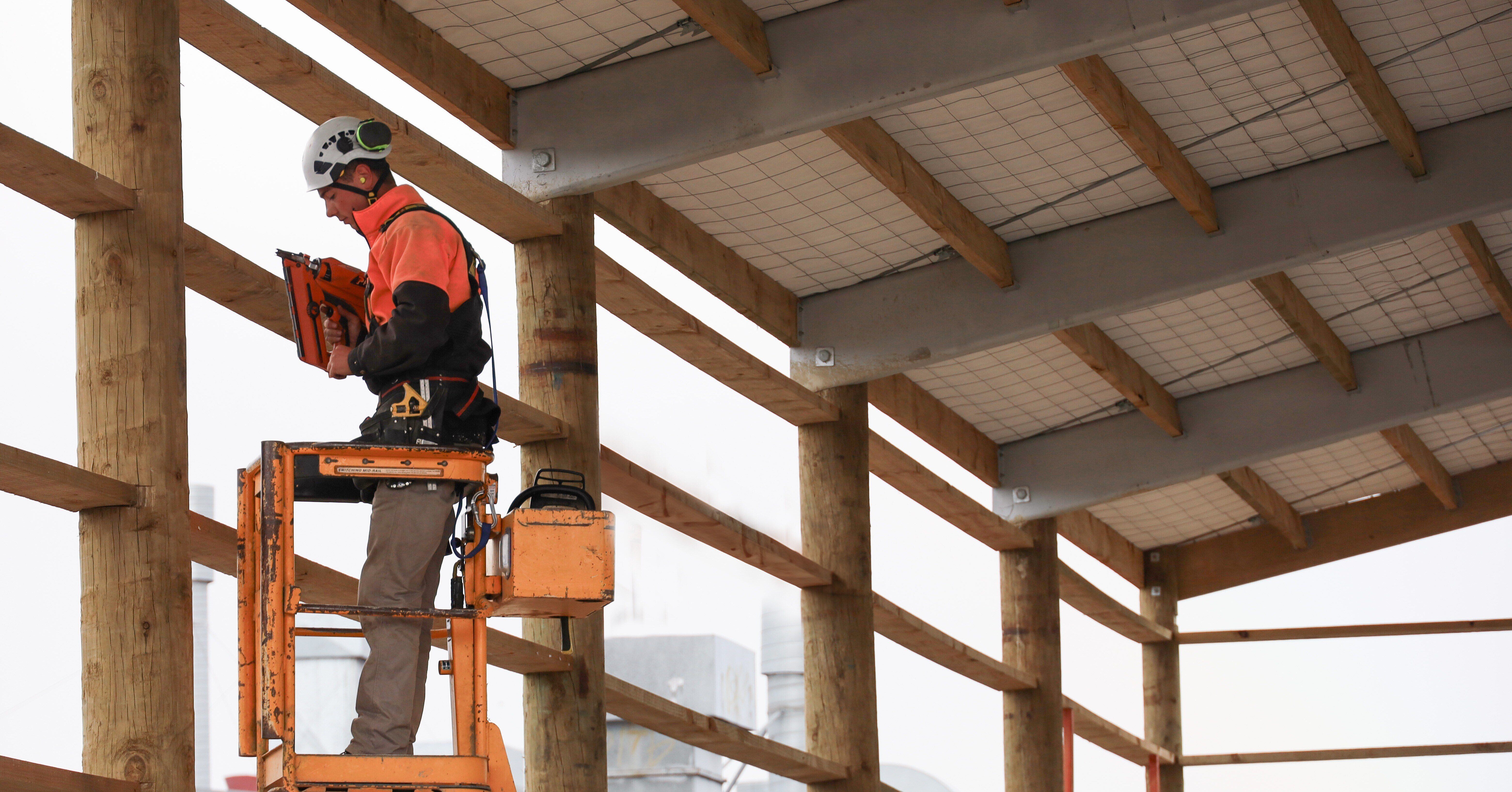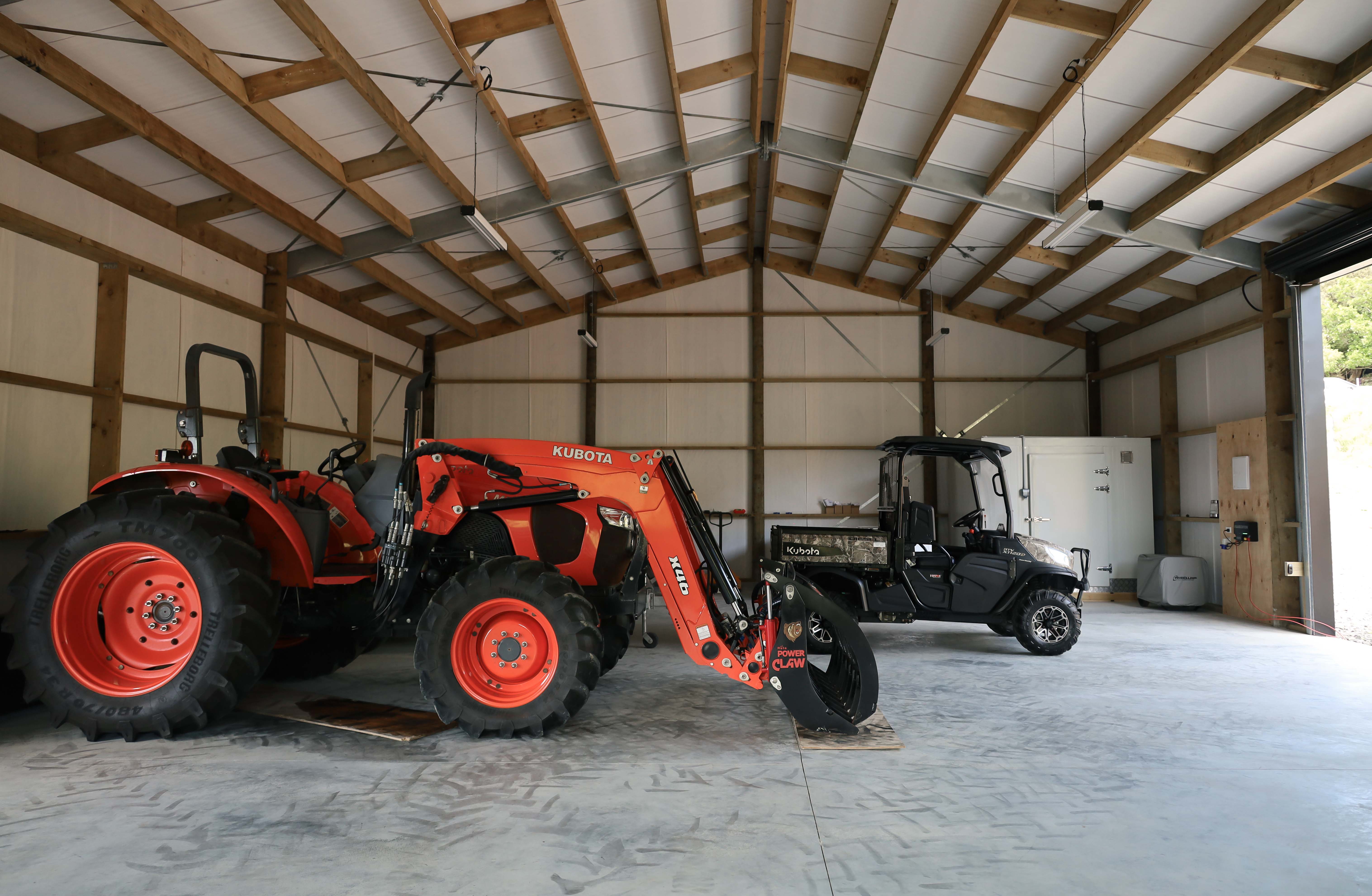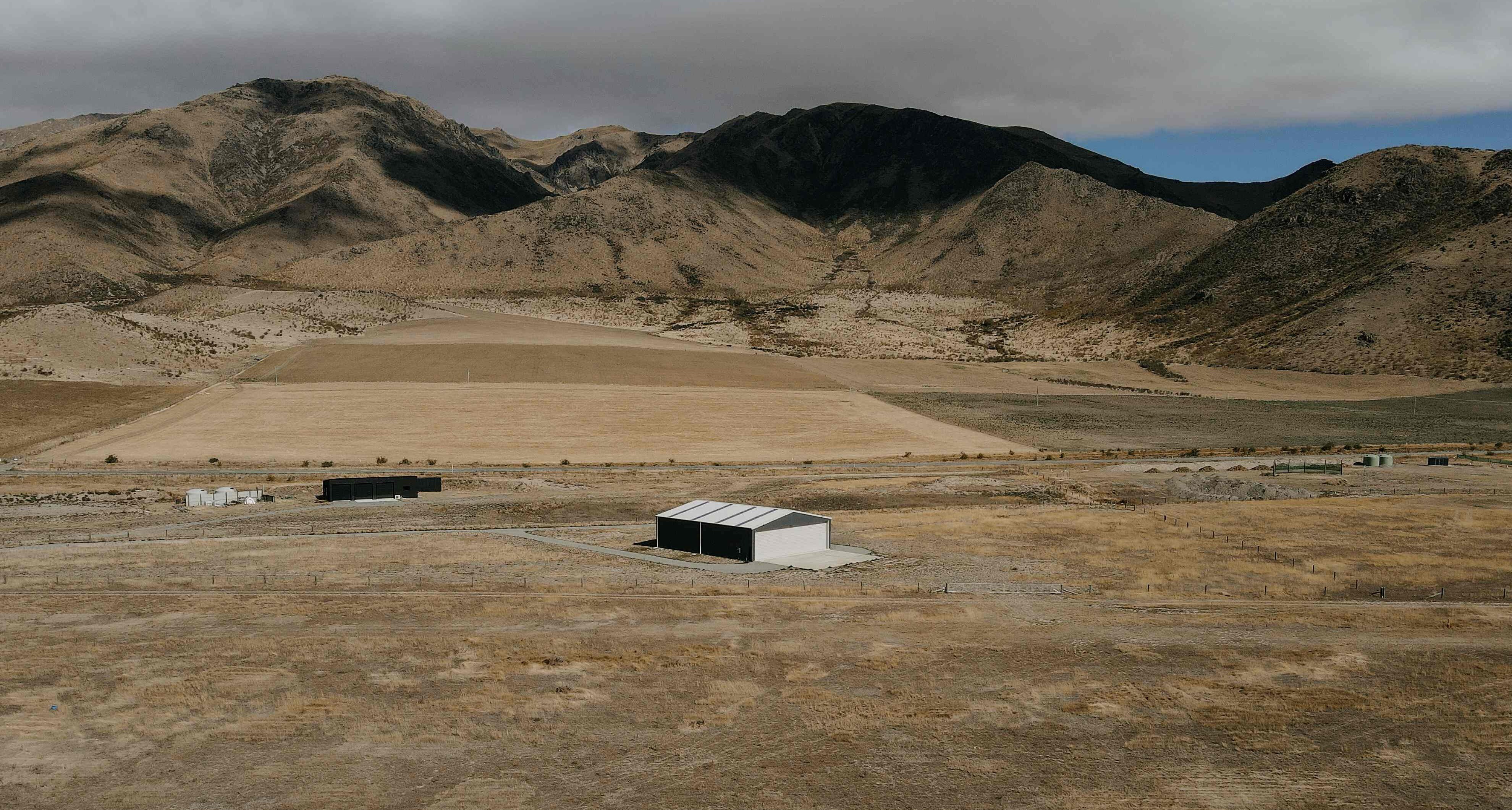
When considering a shed project there are many factors to think about, one that can be overlooked is what type of purlins are being specified in your design.
In this article we look at the most common purlin systems used and walk you through the advantages and disadvantages of timber purlins and steel purlins to help you make the best decision for your shed.
- What is a Purlin?
- Timber Purlins
- Steelbone Purlins (enclosed steel purlin)
- C Section Purlins
- Tophat Purlins
- Choosing the Right Purlins for Your Shed
What is a Purlin?
Let’s start with the basics: What exactly is a purlin?
A purlin is a horizontal beam that supports the roofing sheets of your shed. They run parallel to the ridge of the roof and provide the structure necessary to hold everything in place. Whether you're building a large machinery shed or a smaller storage unit, purlins are essential to the overall strength and stability of your roof. Most sheds feature either timber purlins or steel purlins, and each comes with its own set of benefits and drawbacks.
Now that you know what a purlin is, let’s dive into the details so you can answer the key question: "Which type of purlin is right for my shed?"

Timber Purlins
Timber purlins are one of the most common purlin types around New Zealand, they are predominantly used in pole sheds and some structural steel portal designs.
Pros of Timber purlins:
- Timber purlins play a big part in dampening the noise of weather tools and machinery in the shed. A lot more than an all-steel shed. All-steel sheds tend to get a lot more reverberation and chatter from wind, tools and machinery due to the steel on steel.
- Coupled with the Alpine steel rafters, there is nowhere for birds to perch as they are bolted between the rafters.
- Timber is known to be a better insulator than steel, this helps the shed stay at a more even temperature therefore helping to reduce condensation forming inside the shed. Click here for more information on condensation.
- Timber purlins make it easier to install wiring, line out, and retrofit ventilation.
- At Alpine we pre-dry all timber framing prior to being used which ensures a tidy straight finish and is easy to handle when installing.
Cons of Timber Purlins:
- Maximum bay width is 6.0m long as this is the longest length of timber available.
- If it is installed without being pre-dried, it can move and warp once it is built.
Timber is one of the most common building materials in New Zealand and has been used for decades as a trusted framing solution. Timber purlins are a great option for a noisy workshop as it absorbs and softens the sound giving a warm ambient feel to the building.

Steelbone Purlins
Steelbone purlins are an enclosed V-shaped purlin manufactured from a high tensile galvanized steel coil.
Pros of Steelbone Purlins:
- As the steel bone purlin is fully enclosed there is nowhere for birds to perch.
- The Steelbone purlin minimizes potential dust or material build-up.
- Very quick and efficient to install.
Cons of Steelbone Purlins:
- Can span no more than 10m, sometimes less in high snow areas.
- As the Steelbone purlin is an enclosed section it uses more steel per linear meter than open profile purlins, this typically means it will cost more.
The Steelbone purlin system has become very popular in the agricultural industry where wide bays are required to cater for large equipment along with keeping birds away from machinery.
Given the purlin is compact with no need for obtrusive brackets or knee braces, it provides excellent clearance and allows you to efficiently utilize the space.
%20(1).png?width=1000&height=600&name=Blog%202%20-%20October%20-%20rolled%20steel%20sheds%20(2)%20(1).png)
C Section Purlins
C section purlins are one of the most common purlins used for industrial buildings and all-steel sheds. They are available in a number of sizes and profiles to suit different spans and applications and are relatively cost-effective.
Pros of C Section Purlins:
- C Section purlins can optimize the building design by utilizing a large range of profile depths, sizes and purlin thicknesses.
- It is an efficient lightweight roll form purlin that is predominantly used in commercial buildings where bird proofing is not a concern.
Cons of C Section Purlins:
- The main downside of these C section purlins is they are not perch-free, so if you're concerned about bird intrusion in your shed it is a wise move to consider other purlin solutions.
- They also become a place for dust to accumulate over time and can make your shed difficult to keep clean.
- Often require brackets and braces which can look messy and increase installation time.
C Section purlins are mainly a consideration for large industrial buildings or in some cases, cheap lightweight roll-form steel sheds that use the thin gauge small profile C section purlins.
The Steelbone purlin system has become very popular in the agricultural industry where wide bays are required to cater for large equipment along with keeping birds away from machinery.
Given the purlin is compact with no need for obtrusive brackets or knee braces, it provides excellent clearance and allows you to efficiently utilize the space.
Tophat Purlins
Tophat purlins are often used on lightweight, roll-form steel buildings.
Pros of tophat purlins:
- It has a lightweight profile which is relatively cheap per linear meter.
Cons of tophat purlins:
- They are designed to sit on top of the rafters giving plenty of areas for birds to perch.
- Lightweight and rely on cladding and bracing to be kept straight and rigid.
- Rely on multiple tex screws to assemble making it vulnerable in high snow and wind areas.
- Can easily dent or kink due to the thin gauge steel which can compromise structural integrity.
Choosing the Right Purlins for You
Choosing the best purlin system for your shed depends largely on the size of the structure and your specific needs.
It is well worth considering what purlins are being specified on your project and ensuring you think about the key functionalities such as bird proofing, strength, ease of installation and wiring out.
Still unsure? Feel free to reach out to us with any questions or for further guidance on which material is best suited for your shed. We’re here to help you protect your valuable machinery with the right roofing support.









